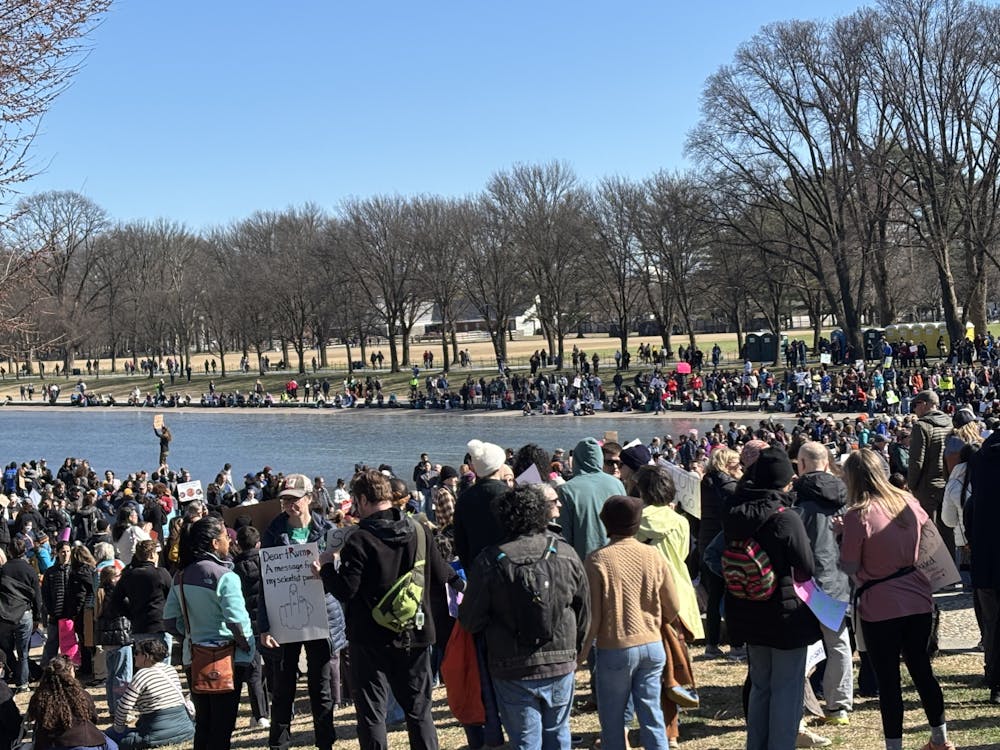The 2019 Novel Coronavirus Research Compendium (NCRC) is an organization at the Bloomberg School of Public Health that reviews and assesses recent publications and preprints on SARS-CoV-2 and COVID-19 research.
In an interview with The News-Letter, Emily Gurley, an associate scientist at the School of Public Health and co-leader of the NCRC, stated that the main goal of the NCRC is to review the evidence presented in research papers and pre-prints related to COVID-19 and identify the studies that will help shape a better response to the pandemic.
“Effective communication of the evidence to the public has been an Achilles’ heel of the pandemic response,” Gurley wrote in an email to The News-Letter.
The NCRC is made up of more than 50 faculty, students and scientists primarily affiliated with the Bloomberg School of Public Health and the School of Medicine. The organization is divided into eight teams, and each of these teams review research pertaining to a different aspect of the pandemic. The topics include diagnostics, modeling, epidemiology, pharmaceutical interventions, non-pharmaceutical interventions, clinical presentation and prognostic risk factors, vaccines, ecology and spillover.
The teams find articles to review on PubMed and other preprint servers, prioritizing those they believe will have an impact on governmental policy and treatment during the pandemic. They also try to review any papers that have garnered attention from news outlets or social media.
After choosing a paper, the team analyzes its methods and limitations. They go on to give the paper a review, summarizing the significance of the findings and declare whether or not the team believes that the research is reliable.
The idea for the NCRC came about last spring during conversations between Gurley, Kate Grabowski, an assistant professor in the School of Medicine, and Elizabeth Stuart, a professor in the School of Public Health.
When their colleagues in the health and clinical departments requested that they advise data coming out about the pandemic, the three of them began reading and reviewing publications on COVID-19. It began clear that others could benefit from their work, and they decided to launch the website for the NCRC in April 2020.
One of the most notable papers that the organization reviewed was a preprint coming out of Stanford University in April 2020. In the paper, the researchers tested residents of Santa Clara County in California for COVID-19 antibodies, and they concluded that the number of COVID-19 cases in the county was over 50 times higher than had been confirmed at that time. The paper garnered significant media attention, but after reviewing the preprint, the NCRC concluded that the data presented did not support the researchers’ conclusion with nearly enough evidence.
Larry Chang, an associate professor at the School of Medicine and member of the Pharmaceutical Interventions team at the NCRC, believes that the group can help provide “objective grounding” amid all the information pertaining to COVID-19.
“Scientific news coverage has been all over the map. I’ve read some of the best scientific journalism one could hope for, and I’ve seen bad takes that send incorrect messages to readers,” Chang wrote in an email to The News-Letter.
As an extension of their efforts to provide accurate information about COVID-19, the NCRC recently participated in a public outreach event. Twelve scientists, who are a part of different teams at NCRC, participated in a Q&A session on the science subreddit (r/science). The forum was organized when a moderator of r/science reached out to Brooke Jarrett, a PhD candidate in infectious disease epidemiology and coordinator at the NCRC. The moderator, who was an old college classmate of Jarrett, asked if the NCRC would be interested in an Ask Me Anything session on r/science to answer COVID-19-related questions. During the Q&A session, the NCRC team drafted responses on a shared document before posting under the username JHUCovidDiscussion.
In the two-hour session on March 1, the team answered more than 50 questions from Reddit users. Some topics included vaccines, routes of transmission, comparison to the 1918 Spanish flu pandemic, long-term effects of infection, mental health consequences of lockdown and even what surprised the scientists the most about the virus. The forum currently has over 1,700 comments, questions and responses.
Stuart credits her colleagues for the organization and success of the event and praises the NCRC for fostering scientific communication.
“It was a huge team effort, which was also one of the things that made it incredibly rewarding and fun,” Stuart wrote in an email to The News-Letter. “The NCRC as a whole is a great model of people with diverse expertise working together to help a broad audience make sense of a large and complex scientific area. I hope that that model in general can be one that is replicated in other scientific areas, beyond COVID-19.”
Gurley expressed that the NCRC aims to participate in more outreach events to foster these conversations between public health experts and the public. She encourages students who are interested in translating scientific findings into public health communication and outreach to look for involvement opportunities within the NCRC.
“Often communication about science is unidirectional, where scientists or the media tell the public what they know,” Gurley said. “Opportunities for the public to ask questions and have them answered is more rare but vitally important.”
Gurley believes that the NCRC’s efforts will continue until the pandemic has resolved; the team has already secured support to continue through the end of 2021.

















